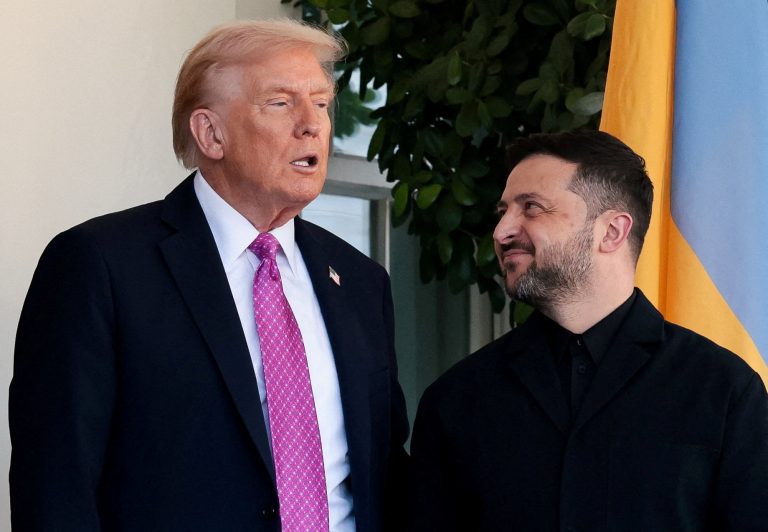Although the outlines of the document are complete, the most sensitive points - including territorial issues and security guarantees - remain the subject of direct negotiations between US President Donald Trump and Ukrainian leader Volodymyr Zelensky.
Rustem Umerov, chairman of Ukraine's Security Council, said the two countries had reached a "common understanding on the key points" of the upcoming agreement. He also expressed the expectation that the presidents could meet in the coming days to finalize the document, ABC News reports.
White House spokeswoman Karoline Leavitt confirmed on the social network X that the talks mark "tremendous progress," but stressed that "the work is not yet done." According to her, a number of sensitive details need to be worked out, including points that will require further negotiations with all three sides - the US, Ukraine and Russia.
US Secretary of the Army Dana Driscoll, who has become a key figure in the diplomatic effort, held two days of talks with the Russian delegation in Abu Dhabi. Washington said their goal is to achieve a lasting peace, while the exact nature of the talks and the composition of the Russian delegation remain unclear.
The controversial 28-point plan and growing concerns in Kiev
The hastily unveiled 28-point US peace plan last week caused shock not only in Kiev but also in several European capitals. The original version reportedly demanded major concessions from Ukraine - ceding territory, capping the army at 600,000 troops and banning it from joining NATO.
For Ukraine, these are conditions it has long rejected.
Since August, when Trump held a surprise summit with Vladimir Putin in Alaska, there have been growing fears that Washington might be willing to agree to a proposal that is noticeably closer to Russia's ideas.
In an interview with Fox News, Trump identified November 27, Thanksgiving Day, as the deadline by which Kiev should express support for the US proposal. He says Ukraine has "limited time to make a decision" and "weak cards."
However, after intensive consultations in Geneva, both sides announced that the document had been reworked and reduced to 19 points.
Many of the contentious parts have reportedly disappeared from the table. According to Ukrainian diplomat Serhiy Kyslytsia, "very little remains of the original version". Territorial issues and Ukraine's relationship with NATO are to be decided only by a personal agreement between Trump and Zelensky.
Ukraine's "red lines" are valid
Kiev has repeatedly warned that certain conditions are unacceptable to it. Ukraine's representative to the UN, Khrystyna Hayovyshynova, has reminded that Ukraine will never recognise Russia's annexation of its territories, will not agree to any limitations on the size or capabilities of its military, and will not allow interference with its sovereignty, including its right to decide on alliance relations.
It also recalled that an aggressor cannot be 'rewarded' with concessions on identity or language. Criticism of the original U.S. document also came from the 3rd Army Corps, consisting mainly of veterans of the Azov unit, who said that the plan as originally drafted represented a "quick implementation of surrender."
Zelensky warned that Ukraine faced an extremely difficult choice between losing its dignity and risking losing the support of the U.S. administration.
European concerns and an alternative plan
European leaders reacted to the first version of the US document with considerable caution. French President Emmanuel Macron has warned that peace must not mean Ukraine's capitulation. German Foreign Minister Johann Wadephul describes the US proposal as a working document that requires further negotiations and insists that Ukraine must negotiate from a position of strength.
European diplomacy chief Kaja Kallas warned that this is a "very dangerous moment" because Russia has no right to demand concessions from a country it has invaded, she said.
At the same time, it has been confirmed that the European Union is preparing its own alternative peace plan, which is supposed to be more acceptable to Kiev. This process has contributed to tensions between the US and its European allies, as Europe was not invited at all to the original proposal.
However, the leaders of France, Germany and Britain, in a phone call with Zelensky, reaffirmed their continued support for Ukraine's path to a just peace. German Chancellor Friedrich Merz stressed that the basis of the negotiations must remain the current front line, which contradicts the original US proposal.
European Council President António Costa pledged that the EU would continue to provide diplomatic and financial assistance to Kiev.
Russia has officially received nothing, but some points are said to be acceptable
The Kremlin says it has not yet seen the US-Ukrainian proposal in official form. However, President Vladimir Putin has admitted that some points of the US plan are in line with the August summit in Alaska where he held talks with Trump.
At the same time, he reiterated that Russia will not back down from its territorial and security demands. Adviser Yuri Ushakov added that Moscow considers the European proposal "completely unconstructive."
(reuters, swag)
